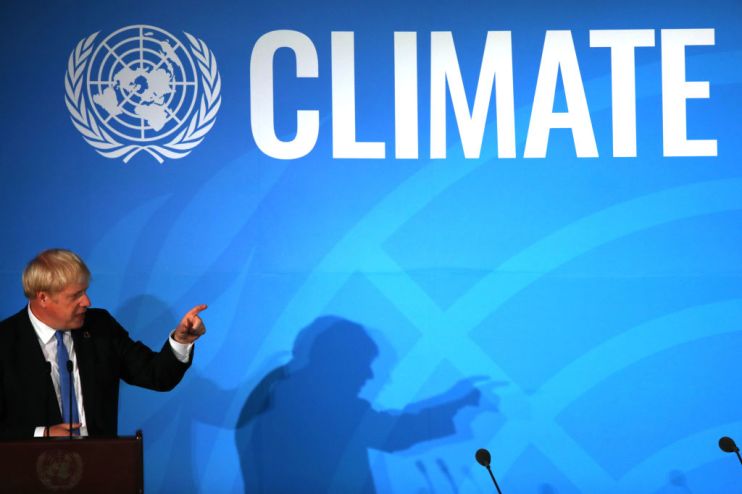Tories need to change their green tune to play well in much-needed constituencies

We are at a landmark moment for climate change and politics in this country. Recent polling by Ipsos Mori found that 35 per cent of the public believe the Conservatives have good policies on climate and the environment, versus just 32 per cent for Labour. What may seem like a small lead is instead a telling development.
Just a decade or two ago, the Conservative party was littered with climate-sceptic MPs and the Prime Minister himself was writing columns saying there was “no evidence” that the planet was suffering from climate change. The transformation has been remarkable.
But there is a danger climate action will be dialed back as the election approaches. If the Conservatives are to win in 2023/2024, they will need to hold on to “new Conservative voters”, particularly those in marginal seats in the North and Midlands. These voters care about climate change, but nowhere nearly as much as other voter groups who voted for the Liberal Democrats, Labour and the Greens in 2019.
These “Red Wall” voters, although climate conscious, care more about the cost of living and protecting the NHS than they do about tackling climate change. With energy prices set to hit record highs this spring, this sentiment is only set to boom.
Being seen as the greenest party is unlikely to win over these voters. The party may improve their perception in climate active cities – but lose support with their new voter base. But losing the climate ticket altogether could also risk votes in those “Blue Wall” seats in the south. The vulnerability to the Lib Dems in these seats has been shown by recent by-elections.
Going big on green jobs is crucial if the Conservatives are to straddle the gap between Wycombe and Workington. At the moment, the people with the most to gain from green jobs are also the most hostile to the transition. The North East is strongly against paying higher prices for the green transition. Yet it is one of the key regions for industrial growth for net zero, with the concentration of new projects such as the East Coast cluster being located there.
Honing this messaging will be important if climate is to be weaponized as an election winning platform. Voters will also need to see genuine change before the next election if they are to be won over. This is no easy win, given that most of the projects in renewables, carbon capture and hydrogen will not bear fruit until 2025 at the earliest. People will not feel the tide of well-paid jobs – green jobs are on average 30 per cent better paid than “brown” jobs – before they go to the ballot boxes.
For voters to feel the benefits of the green revolution in the short term, the Government should provide a suite of educational grants for climate-related education. This would boost the level of educational opportunity for people across the country, especially in those marginal seats in the North and Midlands. It would also equip the UK workforce with the skills needed to take advantage of the green economy.
Climate change is now a key political battleground. This is an historic moment for our country and for the future of the planet. But, if the narrative is not transformed – away from costs and towards jobs – there is a looming danger that the Conservative party will be forced to pivot away from their net zero commitments, putting the target itself in doubt.
